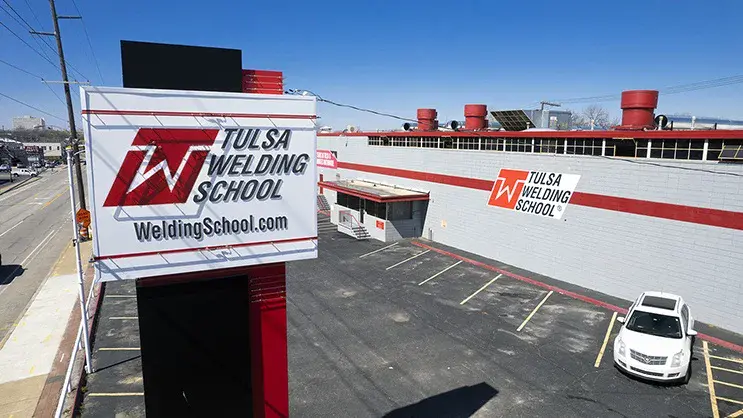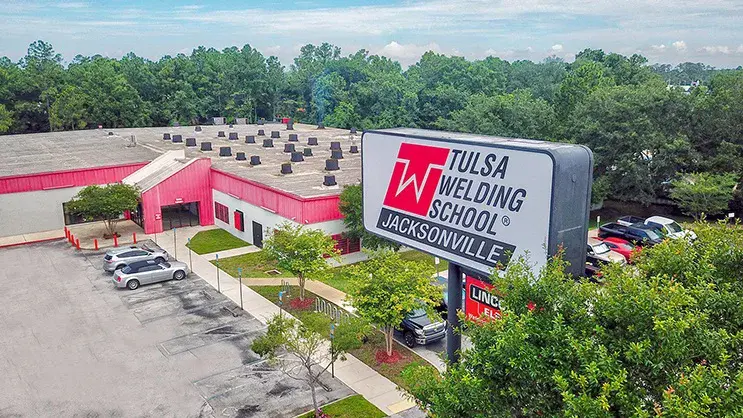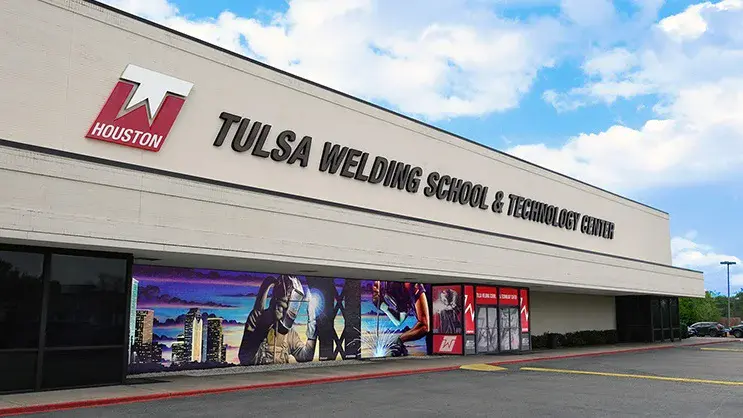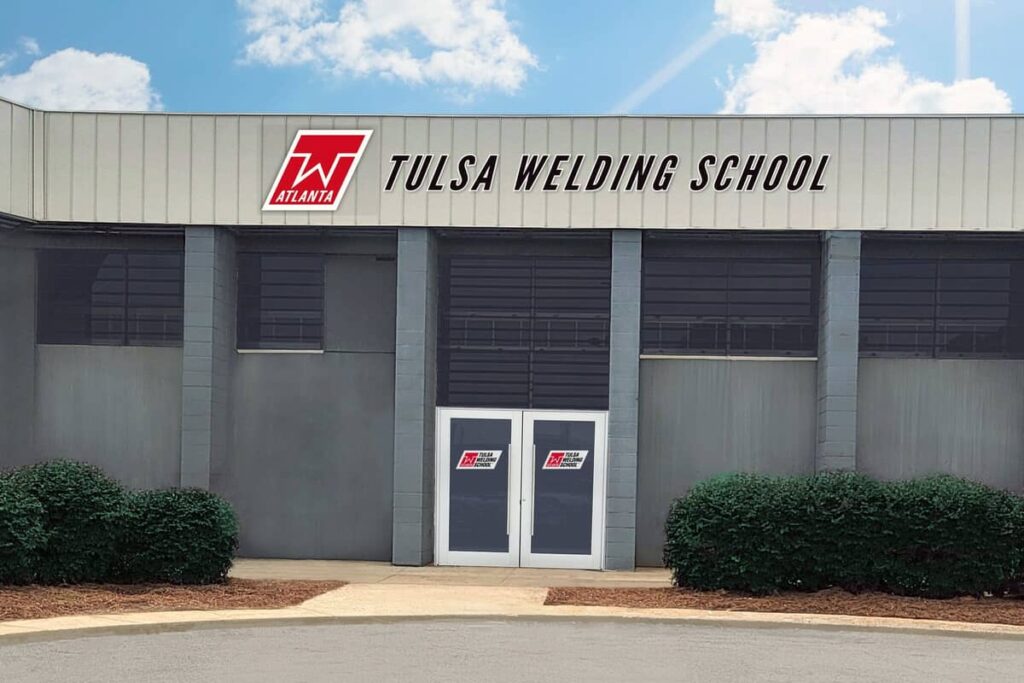TWS is a Great Training Option for Everyone
Learn more about how we can prepare you to advance your career.
Texas weather can swing from blistering heat waves to surprising winter storms, and these swings in weather create constant need for HVAC services. Technicians need to be well-prepared and trained to navigate these ups and downs. As the demand for reliable heating and cooling solutions keeps climbing, specialized training—like what you get at the Tulsa Welding School (TWS) in its HVAC training program—becomes all the more important.
Both technicians and consumers can benefit from understanding how our local climate impacts HVAC systems. Knowing how weather affects HVAC systems helps new technicians choose the right training programs to build their skills and makes service more reliable.
How Texas Heat Waves Increase HVAC Demand
According to a Daikin 2024 World Survey, 40% of people in Houston use their air conditioners 24 hours a day during the summer. With an average daily usage of 17.2 hours, they have one of the highest A/C usage rates amongst 12 major cities. This constant demand for cooling leads to more breakdowns and service calls during peak summer months.
When HVAC systems aren’t maintained regularly, they may fail when people rely on them most. That’s why strong training matters. Technicians need to be prepared for heavy workloads and equipped to quickly troubleshoot issues caused by heat stress. With the right skills, they can keep homes and businesses cool, even during record-breaking temperatures.
Have You Considered a Career in the Skilled Trades?
Fill out the form to recieve a no obligation info packet.
How Winter Storms Affect HVAC Systems in Texas
Cold snaps often lead to a spike in heating service calls, especially when systems haven’t been prepared for sudden drops in temperature.
Power outages are another major concern during winter weather due to the burden it places on the electrical grid. This excess strain can cause blackouts, leaving heating systems offline when people need them most.
To handle these challenges, HVAC professionals need a strong understanding of how heating systems work under stress. HVAC training should cover emergency procedures, fast diagnostic skills, and quick repairs to keep equipment running efficiently in extreme cold. Being ready for winter conditions is part of doing the job right in unpredictable climates.
3 Common Skills HVAC Technicians Use in Extreme Weather
Texas weather can be intense, but not all HVAC technicians are trained specifically to work in extreme temperatures. Instead, they develop the skills needed to diagnose and service systems that help manage those conditions. At TWS, HVAC training focuses on building a strong technical foundation through hands-on learning. Real-world experience, including working in harsh environments, comes later on the job.
At TWS, students get to dive into practical lab experiences that sharpen their essential skills:
- Troubleshooting: Quickly identifying and fixing issues within HVAC systems.
- System maintenance: Performing regular upkeep to keep things running smoothly and efficiently.
- Emergency response techniques: Being ready to spring into action in case a system fails.
TWS equips its students with the knowledge to provide reliable service, no matter how challenging the weather gets.
Proactive HVAC Management in Unpredictable Weather
Regular HVAC system maintenance helps technicians identify potential problems before they turn into costly fixes.
Technicians can guide their clients to stay ahead of potential breakdowns by stressing the importance of:
- Regular inspections: Schedule routine check-ups to keep systems in good shape.
- Insulation evaluation: Make sure the building’s insulation is up to par to maintain temperature stability.
- Refrigerant checks: Keep an eye on refrigerant levels to ensure system efficiency.
- Filter cleaning: Remind clients to clean or replace filters regularly to promote optimal airflow.
By educating clients about these strategies, technicians can help prevent system breakdowns and ensure HVAC units work efficiently when the weather goes wild.
How HVAC Technicians Respond When Systems Fail
When heating or cooling systems stop working during a weather emergency, technicians are the ones who step in to get them running again. These situations demand more than technical knowledge. HVAC professionals often troubleshoot under pressure, communicate clearly with concerned customers, and work efficiently in uncomfortable conditions. This is why adaptability and problem-solving are just as important as mechanical training. It is a side of the job many people do not see, but it is part of what makes this career rewarding for those who want to help others when it matters most.
Some real-world failures have included systems that couldn’t keep up with extreme heat, leaving homes without cooling, and others that broke down in winter due to a lack of regular maintenance. In both cases, the damage could have been prevented with better readiness.
These examples provide valuable lessons for both current and aspiring HVAC technicians. They help current and future technicians understand where systems can fall short and what to do about it. Programs like the one at Tulsa Welding School focus on giving students the tools and knowledge to avoid these issues, keeping them prepared to solve problems in high-pressure situations.
Climate Change Increases the Need for Skilled HVAC Techs
As the demand for skilled technicians rises**, programs like the one at Tulsa Welding School are stepping up to provide the hands-on skills needed to thrive in this fast-paced industry.
If you’re considering a career in HVAC, reach out to TWS for more info on how we can help you get started.
FAQ
- How can Texas heat waves affect HVAC system failures?
Heat waves push HVAC systems to work harder for longer periods. Without regular maintenance, this extra stress can lead to breakdowns right when cooling is needed most. - What precautions should HVAC technicians take during winter storms?
Technicians should make sure heating systems are fully inspected and ready before cold weather hits. They should also remind clients to insulate pipes and check all system parts for wear or damage. - What specific lab skills are vital for HVAC technicians in extreme climates?
Important lab skills include troubleshooting, diagnosing system problems, and responding to emergencies. These skills enable technicians to effectively manage heating and cooling systems under pressure. - How does climate change affect HVAC service demand in Texas?
Climate change is causing a rise in electricity demand in Texas, leading to an ever-growing need for HVAC services as temperatures rise and extreme weather events become more frequent. - What training opportunities does Tulsa Welding School offer for aspiring HVAC technicians? TWS offers a hands-on HVAC training program focused on real-world skills. Students learn through lab work and practical exercises to prepare for jobs in today’s fast-paced HVAC industry.








